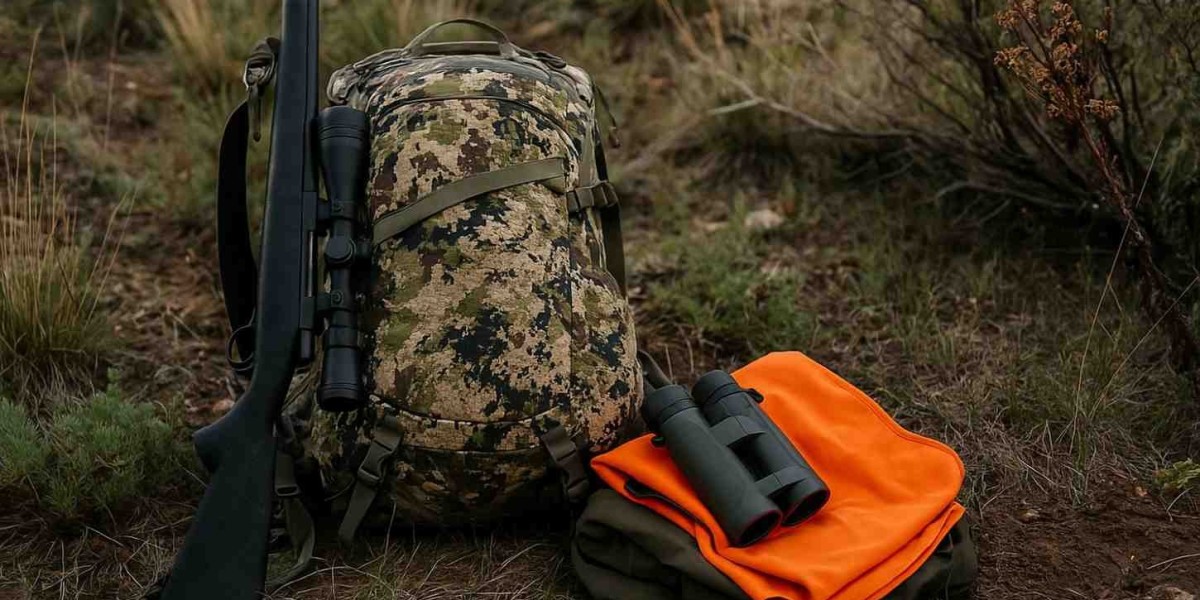Planning a successful hunting expedition involves more than just scouting game and securing permits. The gear you carry can make or break your experience. Whether you're trekking into the backcountry or setting up camp near familiar grounds, having the right equipment ensures you’re prepared, safe, and efficient.
Selecting gear isn't just about buying the most expensive items—it's about choosing what's right for your terrain, game, and hunting style. Here's how to pick the right hunting gear for your next trip.
Understand Your Environment
The terrain and weather of your hunting location should directly influence your gear decisions. Are you hiking into alpine wilderness or waiting in a tree stand in the Midwest? Will you be exposed to snow, rain, or dry desert heat?
Different environments require different clothing, footwear, and shelter options. Start your gear planning by understanding what nature will throw at you.
Prioritize Safety and Navigation
Reliable navigation tools are essential, especially if you’ll be hunting in remote areas. A GPS device, paper map, and compass should all be part of your kit. Don’t rely solely on phone apps—batteries die fast in cold temperatures.
Also pack a compact first aid kit, a headlamp with extra batteries, fire-starting tools, and an emergency whistle. When in the wild, being over-prepared is never a mistake.
Dress for Performance
Your clothing system should be layered, breathable, and tailored to the conditions. Use moisture-wicking base layers, insulating mid-layers, and waterproof outer shells.
Look for gear made from high-performance fabrics like merino wool, GORE-TEX, or synthetic insulation. These materials offer durability without adding unnecessary weight, helping you stay mobile and comfortable.
Footwear Matters More Than You Think
You’ll likely spend long hours on your feet, sometimes covering miles of uneven ground. A good pair of hunting boots should offer:
Waterproof protection
Ankle support
Proper insulation
Aggressive traction
Try your boots on with hunting socks before your trip to avoid discomfort or blisters.
Opt for Lightweight Hunting Gear
Weight is one of the most important factors in gear selection, especially for backcountry or multi-day hunts. Every ounce adds up over time.
Choosing lightweight hunting gear allows you to move faster, carry more essentials, and reduce fatigue. Lightweight tents, sleeping bags, backpacks, and game bags are designed to maximize functionality while minimizing bulk.
This is particularly critical when you need to pack out harvested game. Saving weight upfront gives you flexibility on the return trip.
Select the Right Backpack
Your backpack is the foundation of your loadout. Make sure it offers:
Internal frame support
Load lifter straps
Meat hauling compartment
Hydration compatibility
A well-fitted, high-capacity pack with proper adjustment options will reduce stress on your back and shoulders.
Carry Efficient Game Processing Tools
After a successful hunt, you’ll need tools to process your harvest. These should be lightweight, sharp, and reliable.
Include:
A quality field knife or replaceable-blade knife
Game bags (breathable and durable)
Gloves for hygiene
Bone saw or multi-tool if needed
Don't forget to label and organize your gear to reduce field time and waste.
Choose Optics with Purpose
Quality optics can enhance your ability to spot and evaluate game. A lightweight set of binoculars or a compact spotting scope can help you cover more ground with less movement.
Look for:
Fogproof and waterproof ratings
Low-light performance
Lightweight composite frames
Also, don’t forget a durable bino harness to keep optics secure and accessible.
Consider Your Shelter and Sleep System
If you're camping overnight, you’ll need a shelter that’s weather-appropriate and easy to set up. Ultralight tents, bivy sacks, and tarps are great options for solo hunts.
Pair this with a high R-value sleeping pad and an insulated sleeping bag rated for the season. Staying warm and well-rested is critical for endurance and decision-making.
Organize and Pre-Test Your Gear
Before heading out, do a full dry run with your gear. Set up your shelter, test your water purifier, pack and repack your backpack, and ensure your rifle or bow is functioning perfectly.
Hunting is demanding, and failures in the field can be frustrating—or dangerous. Knowing your gear inside and out gives you the confidence to handle unexpected situations.
Plan for Sustenance and Hydration
Bring calorie-dense, packable food options that can withstand the elements. Freeze-dried meals, energy bars, jerky, and trail mix are popular choices.
Make sure you have:
A lightweight stove or jet boil
Fuel canister
Water filter or purification tablets
Hydration should never be compromised, especially at high altitudes or in dry climates.
Final Thoughts
Selecting the right hunting gear isn’t about following trends—it’s about understanding your personal needs, the demands of the environment, and the game you're pursuing.
Focus on gear that’s reliable, light, and multi-functional. Prioritize safety, mobility, and meat care. And always test your equipment before your expedition begins.
For dependable, field-tested lightweight hunting gear, explore our collection at VIAM Outdoors. Our gear is designed by hunters, for hunters—crafted to meet the challenges of backcountry hunting with strength, comfort, and performance in mind.








